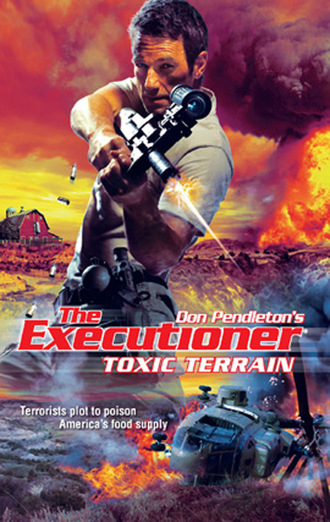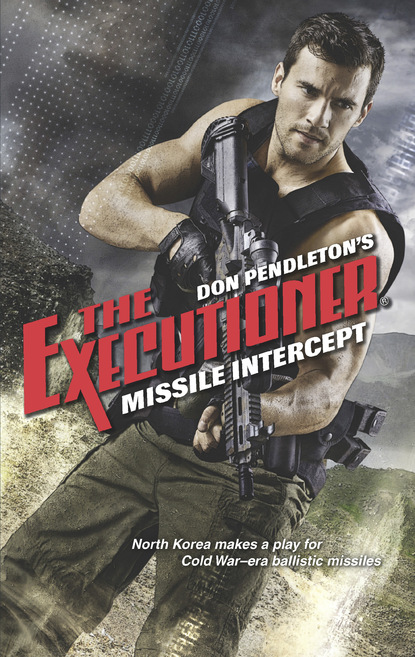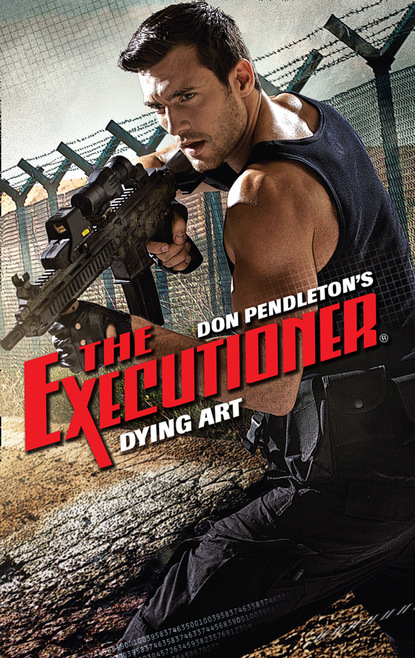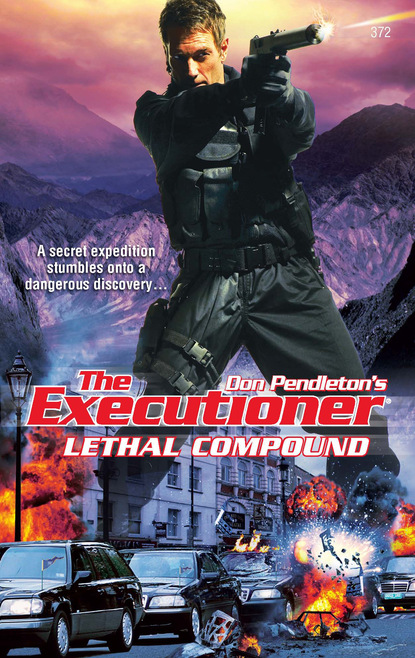
Полная версия
Toxic Terrain
“I’ve been shot,” Bolan told Kemp.
“My God!” Kemp exclaimed. “Is it serious?”
“It’s not good,” he told her. “It could get serious in a hurry if I don’t do something about it soon.”
“Where are you?”
“I’m about a half-hour ride from where we parked the horse trailer yesterday. How soon can you be there?”
“It’s about a forty-five-minute drive,” she said. “I can be there in half an hour.”
“Watch your back,” Bolan warned. He tried to sound strong to keep from spooking Kemp, but after he put his phone away he realized he’d lost more blood than he’d thought. It took all the concentration he had to remain in the saddle and control his horse as it trotted through the rugged terrain. He checked his watch, more to give him something to focus on than to see the time, an attempt to keep from passing out.
Bolan used the last of his strength to negotiate the switchback trail that led down to the parking area where he was supposed to meet Kemp, feeling consciousness slipping away. The soldier summoned all the inner strength he could muster to dismount his horse and remove the saddle and bridle. The fewer clues he left for his pursuers, the better. When he was done, he gave the horse a weak slap on the rump and sent it scampering into the Badlands. The last thing he saw before he passed out on top of the saddle was a pair of headlights coming into the parking lot. He hoped to hell they belonged to Kemp’s pickup.
“DID YOU STOP HIM?” Chen asked Liang over the radio.
“No, sir,” Liang replied. “I wounded him, but he was able to kill the horse I was riding before I could get another shot at him. I am sorry, sir.”
Chen knew that the colonel would stop at nothing in pursuit of prey—the man seemed to have no fear, even of death. If this intruder was able to make Liang break off the chase, especially after being wounded, then Chen knew they were up against a seasoned professional.
“Were you wounded?” he asked Liang.
“No, sir. My horse stopped the one bullet the man fired before he got away.”
“Did you get a look at the man?”
“Not a good look, sir, but I believe it was the man who was with the veterinarian yesterday.”
This news concerned Chen. Gordon Gould had sent him the information that the sheriff had collected on this man, Matt Cooper, and everything he’d seen worried him. There was nothing in the report that indicated that Cooper would present any problems, which in itself was the problem. The man was simply too clean. No messy divorces—no marriages for that matter—no disciplinary problems in the military, but also nothing outstanding. No criminal background, not even a parking ticket.
Everything pointed to a professional cleansing of this man’s entire history. Such a thorough cleansing would require cooperation at the highest levels of government. It would also require resources far beyond the reach of any “security consultant,” whatever that was. Clearly this Cooper was well-connected, meaning he either worked for some governmental agency, or at the very least worked with one.
But which one? Not the CIA—of that Chen could be certain. Chen and his comrades were leaving nothing to chance; they were betting everything on the success of their plan. They had a man inside the CIA, and if the Agency had a resource on the ground in North Dakota, Chen would have known about it. Likewise Chen had eyes and ears inside the FBI and there was no activity from that quarter. The NSA was a tougher nut to crack, but as far as Chen knew, its operations began and ended with gathering information. The capacity to convert that information to genuine action seemed beyond them. And as far as Chen was concerned the Department of Homeland Security was pathetic beyond being even a joke, a bloated bureaucracy that was nothing more than a halfway house for utter incompetents owed political favors.
That eliminated every known source of this intrusion on their operations, but wasn’t terribly helpful in deducing who actually did employ Cooper. Other than the obviously doctored background report that the sheriff had pulled, Chen knew only one thing about the large man—he was extremely dangerous. The man needed to be stopped.
“How far do you estimate Cooper has traveled since you last saw him?” Chen asked.
“Possibly two miles, no more than three.”
Chen pondered his options. The helicopters were at the northeast unit of the ranch nearly one hundred miles away and could not be called back in time to help with the chase, and the terrain was too rough to use vehicles, even ATVs. The only way to pursue this intruder was on horseback. Chen needed to act fast if he was to have any chance of capturing Cooper.
“I’m sending out a patrol on horseback,” he stated. “One of them will have your Arabian. I want you to meet up with them and get back on the trail of the intruder. Give me your GPS coordinates.”
BOLAN WOKE UP to find himself lying on an operating table, but he wasn’t in a hospital. A pair of bright green eyes peered at him from over a hospital face mask. Kristen Kemp sewed the last stitches into his shoulder. He watched her finish and then remove a needle from his left arm. She placed a cotton ball over the hole left by the needle and taped it down.
“You’ve lost a lot of blood,” she told him. “By all rights you should still be sleeping.”
“Are we in your clinic?” he asked. He looked around at the Spartan operation. He appeared to be in an operating room, lying on a stainless-steel table. Through an open door he saw a plain lobby bereft of plants, wall hangings, or other items that might provide comfort to a worried pet owner. This place was all business, like the people of the region themselves. It really was a large-animal clinic, a glorified metal barn designed to keep people’s business tools—their horses and cattle—healthy. There didn’t appear to be a lot of resources devoted to pampering pet owners.
“Why do you ask? You have a problem being treated by a veterinarian? Are you afraid I might get confused and neuter you?”
“In my line of work I consider having a bullet removed by a veterinarian luxury treatment,” he said. “It beats doing it myself.”
“That must be some line of work you have. I don’t think I’m going to sign up for security-consulting duty any time soon.”
Bolan sat up and tried to collect his thoughts. “How long was I out?” he asked.
“About an hour.”
Bolan tried to focus on the logistics of what had just happened. By this point his pursuers may or may not have found his horse. “Did you bring my horse tack?” he asked.
“I figured it must have been important for you to take the time to remove it in your condition, so, yes, I made sure I grabbed it. You must be awfully fond of that saddle.”
Bolan remained silent, contemplating the likelihood that they’d been followed. If the Ag Con men found his horse, they wouldn’t be able to positively identify it as his, and without leaving the tack behind, they wouldn’t have a starting point from which to begin their search. On the other hand, they knew that Bolan was somehow connected to Kemp, so they’d almost certainly come after her, meaning that they weren’t safe here.
Kemp put her hands on Bolan’s bare shoulders and tried to get him to lie back down. “You’ve lost a lot of blood,” she repeated. “You should rest.”
“We’re not safe here,” Bolan said.
“That’s ridiculous,” she said as she covered his wound with a sterile bandage. “Grassy Butte has 250 people, and I know every last one of them personally. No one’s going to harm us here.”
“Have you ever been shot at before yesterday?” he asked.
“No.”
“Whatever you thought you knew about this place changed the moment that happened,” he told her. “Grassy Butte suddenly became a whole lot less hospitable. Those 250 people you think you know? You can’t trust any of them, not for the time being. Something big is going on here. I don’t know what it is, but I do know that it’s damned dangerous.”
“Are you serious?” she asked. As Kemp leaned forward to apply another adhesive strip to his bandages, Bolan saw a shadow of a man holding what could only be a gun outlined in the window behind her. He reached out to grab the woman and flipped her over him. Before she landed on the hard-tiled floor, automatic gunfire tore through the corrugated steel that comprised the walls of the clinic. Bolan hurled himself down on top of her.
The bullets ripped through the metal walls, its insulation and inner plasterboard like they were paper, but the rounds didn’t have enough energy to penetrate the stainless-steel operating table behind which Bolan and Kemp hunkered.
“Where are my weapons?” Bolan asked.
“I’m lying on them,” Kemp replied. She rolled away to reveal most of Bolan’s equipment—his handguns, extra magazines, binoculars and sat phone—along with an extremely bloody shirt with a large hole in the left shoulder.
Bolan pulled the Desert Eagle from its holster and chanced a peek around the edge of the operating table. He could see a streetlight, which was what cast the shadow that had alerted him to the shooter—likely just one of many, judging from the amount of lead flying through the clinic. From the angle of the light he estimated the location of the shooter, whose shadow he could still see in the window glass. He calculated where the man would be standing to cast a shadow at that angle, aimed and fired, punching several holes through the wall in that direction. The hot loads that John “Cowboy” Kissinger had loaded up for him back at Stony Man rammed through the wall at a tick over 1,500 feet per second and found their mark. Bolan watched the shadow in the window drop to the ground, but the rounds kept pouring into the building.
“Is there another way out of here?” Bolan asked.
“Yeah, we can get out the back.”
“That means they can get in the same way,” Bolan said, “but I don’t see many other options here.” The door to the back was directly behind the operating table. Bolan noted that the shots were only coming at them from the front of the building. “I wonder why they aren’t shooting at us from the back.”
“They might be, but they’d have to penetrate about twenty feet of hay bales to reach us. We’ve got hay stored on that side of the building.”
“Have you got any roof vents?”
“Of course,” Kemp said. “We have to comply with building codes.”
“Are they turbine vents?”
“No, only every other one is a turbine,” Kemp said.
“That means we can get out through the others,” Bolan said. “Follow me.”
While they’d been discussing the building’s specifics, Bolan had slipped into the shoulder rig that held his Beretta 93-R and extra magazines. He didn’t bother with the destroyed, bloody shirt. He put the reloaded .44 Magnum handgun back in its holster, which he’d clipped onto his belt, and led the way into the back room with the Beretta.
Scoping out the rear room, which was really just a large barn, complete with pens occupied by various cows, sheep and horses, all of which were extremely distressed due to the gunfire, Bolan saw that the back door was still closed. “I wonder why they haven’t come through the back door?” he asked.
“Probably because of Earl,” Kemp said.
“Earl?”
“He’s an especially foul-tempered Angus bull that we use for sperm,” Kemp replied. “I think they’re going to need something with a little more kick than a .223 to get past Earl.”
Kemp and Bolan made their way to the stack of hay bales along the far wall. They scrambled to the top, then climbed into the metal rafters holding up the roof. The soldier punched out the first roof vent he found and they both climbed onto the roof, Bolan’s feet clearing the vent milliseconds before the shooters burst through the front door.
Bolan looked over the peak of the roof and saw an SUV parked on the street a few feet away from the driveway that led into the clinic’s parking lot. The vehicle appeared empty except for the driver, but it was hard to be certain because of the darkly tinted windows. He saw that the men in front of the building had entered through the front door, probably expecting to find perforated bodies. But the only person in the front of the building was the man Bolan had shot, and he wasn’t moving. Two men stood guard at the rear of the building, just outside Earl’s pen, waiting to see if anyone came out the back.
The drop to the ground was too far to risk jumping. A sprained or broken ankle would be a death sentence for both of them, but Bolan saw an option—a large manger filled with alfalfa for Earl to munch on. But first the soldier had to deal with the sentries, and he had to do it fast, because judging from the commotion in the building, the shooters had discovered that they hadn’t succeeded in killing him and Kemp. Bolan aimed the sound-suppressed Beretta at the farthest sentry and drilled a round right between his eyes. The man’s buddy saw him fall and looked up for the source of the coughing sound made by the Beretta, but before he could raise his own gun, Bolan put a second round through the top of his head, dropping him like a stone. Then the Executioner stood up and fired three quick rounds through the SUV’s open driver’s window. It was dark inside the SUV cab, but Bolan saw the outline of spray issuing from the driver’s head as the man slumped forward, setting off the SUV’s horn.
“Now what?” Kemp asked.
“Now we jump.” Bolan grabbed the woman around the waist and jumped down into Earl’s manger. The falling bodies startled the bull and he lunged away. Before he comprehended the fact that he had visitors, both Bolan and Kemp were running for the corral. Earl gathered his wits and charged the pair, but they managed to grab the rail of the corral and hurl themselves out of the pen just before the bull crashed into its metal bars. That made Earl angrier, and he was about to charge the fence again when the back door opened and two gunmen came blundering into his pen. The gigantic black bull whirled and before the first man out knew what was happening, Earl ran him down and pummeled his body into the hay and manure. The man’s partner froze, giving the bull an opening, which he put to good use, ramming the sentry against the steel building, snapping his spine.
Kemp and Bolan missed out on all the Earl-generated carnage because they’d jumped in a Yamaha Rhino ATV that Kemp and Bowman used for doing chores around the clinic property. The Rhino was a side-by-side ATV, meaning that rather than sitting astride it the occupants rode in bucket seats inside a Jeep-like cab. They’d already cleared the property and were heading into the Badlands by the time Earl had pulverized his second victim.
Bolan let Kemp drive the ATV. He had plenty of experience driving every type of off-road vehicle, but the vetknew how to operate this particular one and she knew the terrain.
“Where are we going?” he asked over the roar of the engine, which Kemp was running at full throttle.
“I know a safe place,” she replied.
Конец ознакомительного фрагмента.
Текст предоставлен ООО «ЛитРес».
Прочитайте эту книгу целиком, купив полную легальную версию на ЛитРес.
Безопасно оплатить книгу можно банковской картой Visa, MasterCard, Maestro, со счета мобильного телефона, с платежного терминала, в салоне МТС или Связной, через PayPal, WebMoney, Яндекс.Деньги, QIWI Кошелек, бонусными картами или другим удобным Вам способом.












